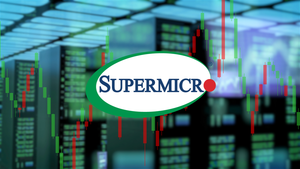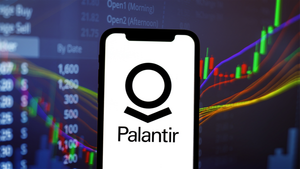The heart is one of the most essential organs that propel life by pumping blood throughout the body and supporting the function of other critical organs. Unfortunately, heart disease is the number one leading cause of death in the United States across all genders, racial and ethnic groups.
According to the U.S. Centers for Disease Control and Prevention (CDC), one person dies every 34 seconds in the U.S. from cardiovascular disease. In 2020, around 697,000 Americans died from heart disease, which amounted to about one in every five deaths. From 2017 to 2018, the CDC estimates heart disease costs in the U.S. amounted to roughly $229 billion in health care services, medicines, and lost productivity.
Coronary heart disease (CAD) is the most common type of heart disease, which accounted for 382,820 deaths in 2020 of a total of 697,000 from all forms of heart ailments. It is estimated an astounding 20.1 million adults aged 20 or older have CAD. This means about 7.2% of the U.S. population is currently suffering from CAD.
CAD occurs as the arteries in the heart accumulate plaque along the arterial wall. Over time, the plaque buildup restricts blood flow to the heart, which can lead to a heart attack. As a result of CAD’s prevalence, heart attacks have become increasingly common. The CDC estimates an American has a heart attack every 40 seconds. Roughly 805,000 people in the United States alone have a heart attack each year.
Despite heart disease continuing to ravage the country and increasingly other parts of the world, the standard of care for these types of diseases have largely not experienced meaningful upgrades in decades. In fact, the 12-lead electrocardiogram (ECG), which is a medical device used to check and monitor a patient’s heart rhythm and electrical condition, is still largely unavailable outside of a clinical setting. In addition, ECGs are extremely bulky, contain lots of wires, and require the placement of sticky electrodes and a trained nurse to operate the machinery. In essence, the standard of care for 12-lead ECG technology has not changed in decades.
However, there is one company out there that is working on the next generation of the 12-lead ECG, which will allow patients and medical professionals alike to monitor heart function via wearable medical devices and telehealth services.
Let’s take a deeper look into HeartBeam, Inc. (NASDAQ: BEAT) and its disruptive technologies that will help heart patients gain the piece of mind as HeartBeam’s technology will ensure that they stay up-to-date on their cardiac condition.
Overview: HeartBeam
HeartBeam is a medical technology company, which is focused on developing telehealth solutions to assist heart patients and their caregivers with real-time detection and monitoring of cardiac diseases outside of a clinical environment. Unlike other companies in the digital cardiac health market, HeartBeam positions itself as a comprehensive solution offering a standard of care 12-lead ECG, still the most widely used diagnostic tool in cardiology, with patients 24/7.
AIMIGo
Powering HeartBeam’s technologies are its AIMI software solution and its AIMIGo 12-lead ECG machine comprehensive solution. The company’s AIMIGo device is the size of a credit card and weighs only one ounce. Furthermore, HeartBeam has developed an associated software application that can provide synthesized baseline and symptomatic 12-lead ECGs for physicians, as well as provide a symptoms report and a risk history of the patient.

The patient puts the credit card-sized ECG machine over their heart and using finger-placed electrodes and ejected chest electrodes, can provide their healthcare providers with 12-lead ECG-powered data that can help decide the next steps for treatment. The AIMIGo device can be used anywhere and is a major upgrade from the old, bulky, and uncomfortable ECG machines that continue to serve as the standard of care. Most importantly AIMIGo system provides all the data that a physician needs to decide if a patient is having a heart attack.
Management has developed a subscription model that would utilize five existing remote patient monitoring billing codes to help medical professionals properly provide services with the device that can be billed under existing treatment conditions. In the AIMIGo subscription model, an AIMIGo prescribing medical practice would receive at least $1,300 per year per patient. HeartBeam would receive a technical fee of $600 per year per patient from that practice as a result. Overall, the total addressable market for HeartBeam’s AIMIGo device is an impressive $10 billion because it is the only wearable that can provide a full 12-lead ECG.
Popular alternative wearable devices like Apple’s (NASDAQ: AAPL) Watch, and offerings from AliveCor, iRhythm and Biotricity are more focused on AFib detection. In fact, here is the warning message Apple Watch users receive when they use the single-lead ECG feature:

This means these devices only use a single-lead ECG, which has very limited diagnostic value compared to the powerful 12-lead ECG. Furthermore, the total addressable market for heart attack patients is six times larger than the AFib market, which stands at $2 billion.
AIMI Software Solution
Alongside the AIMIGo ECG device is HeartBeam’s associated software solution for emergency rooms (ER) called AIMI. The AIMI platform is planned to utilize a software licensing business model, which would allow the company to assist healthcare professionals In ERs with identifying patients at a high risk of heart attacks and provide the appropriate treatment based upon the rapid detection results. With chest pains accounting for the second most common reason for an ER visit, HeartBeam’s AIMI and AIMIGo can help unclog emergency rooms by considerably speeding up heart attack detection.
In August 2022, HeartBeam filed an FDA 510(K) submission for its AIMI software platform. Under the 510(K) regulatory pathway, the AIMI software will be designated as a medical device. Overall, the AIMI software platform is estimated to have a total addressable market of around $500 million.
HeartBeam Unveils New Wearable Smart Watch Capable of Running a Full 12-Lead ECG
As if the AIMIGo device was not disruptive and impressive enough, the HeartBeam team has taken their corporate mission to the next level with the unveiling of a new smartwatch design that will be capable of running a full 12-lead ECG, as in the case of the AIMIGo device.
In November 2022, HeartBeam was awarded a U.S. patent that protects the company’s unique 12-lead ECG smartwatch-based monitor intended to detect heart attacks and complex cardiac arrhythmias. With the overall health wearables market estimated to reach a market value of $196 billion by 2030, the new smartwatch is a huge opportunity for HeartBeam.

It is amazing to think that thanks to HeartBeam, the ECG care process has been completely disrupted on a massive scale. This company’s AIMIGo credit card-size device and now its planned smartwatch will have the same power and diagnostic capabilities as the ancient, bulky, and outdated ECG machines in use today in medical institutions.
Furthermore, these disruptive devices help to unclog emergency rooms and save both the patient’s and medical professionals’ time when determining a heart-based diagnosis and related treatment. This may be the biggest breakthrough in MedTech in this century thus far for the number one cause of death: heart disease and specifically heart attacks.
Analysts Maintain a “Buy” Rating on HeartBeam
HeartBeam currently has four analysts covering its stock: Jason Kolbert of Dawson James and Bill Sutherland of Benchmark Co., Ben Haynor of AGP, and Leo Carpio of Joseph Gunnar. Four months ago, Mr. Jason Kolbert initiated coverage on BEAT with a “buy” rating and an initial price target of $12.00. This implies a potential upside of over 129% from its current price. Bill Sutherland initiated coverage on HeartBeam twelve months ago and maintains a “buy” rating and a price target of $9.00. Mr. Sutherland’s price target implies a potential upside of nearly 72% from current levels.
Alliance Global Partners (AGP) recently initiated coverage of HeartBeam. Analyst Ben Haynor launched with an initial “buy” rating and a $10.00 price target. Mr. Haynor’s price estimate implies a potential upside of over 91% from current levels. Leo Carpio of Joseph Gunnar is another recent analyst addition to the company.

Overall, HeartBeam is a very impressive company that is seeking to disrupt the monitoring and diagnostic approach to America’s leading cause of death: heart disease. In what could be considered to be one of the most significant technological breakthroughs in medical technology in recent memory, HeartBeam stands to be a major benefactor once the FDA fully approves its products for commercial launch.
HeartBeam’s management and scientific advisory teams are top-notch. In fact, the underlying technology powering HeartBeam’s platform was invested by two nuclear physicists and is fully protected by numerous U.S. patents. This means no competitor, no other company today can compete with HeartBeam on the disruptive capabilities in the cardiac solutions market. The company continues to show massive potential, yet currently only trades at a market cap of just over $38.5 million. If HeartBeam can tackle a meaningful part of its TAM estimate of $10 billion, this stock could be worth a whole lot more over time. Moreover, big strategic players in the MedTech field as well as in consumer-facing products such as smart watches, are very likely soon to take a keen interest in HeartBeam’s unparalleled telemedicine capabilities.
Disclaimer:
Spotlight Growth is compensated, either directly or via a third party, to provide investor relations services for its clients. Spotlight Growth creates exposure for companies through a customized marketing strategy, including design of promotional material, the drafting and editing of press releases and media placement.
All information on featured companies is provided by the companies profiled, or is available from public sources. Spotlight Growth and its employees are not a Registered Investment Advisor, Broker Dealer or a member of any association for other research providers in any jurisdiction whatsoever and we are not qualified to give financial advice. The information contained herein is based on external sources that Spotlight Growth believes to be reliable, but its accuracy is not guaranteed. Spotlight Growth may create reports and content that has been compensated by a company or third-parties, or for purposes of self-marketing. Spotlight Growth was compensated two thousand five hundred dollars cash for the creation and dissemination of this content by the company.
This material does not represent a solicitation to buy or sell any securities. Certain statements contained herein constitute “forward-looking statements” within the meaning of the Private Securities Litigation Reform Act of 1995. Such statements may include, without limitation, statements with respect to the Company’s plans and objectives, projections, expectations and intentions. These forward-looking statements are based on current expectations, estimates and projections about the Company’s industry, management’s beliefs and certain assumptions made by management.
The above communication, the attachments and external Internet links provided are intended for informational purposes only and are not to be interpreted by the recipient as a solicitation to participate in securities offerings. Investments referenced may not be suitable for all investors and may not be permissible in certain jurisdictions.
Spotlight Growth and its affiliates, officers, directors, and employees may have bought or sold or may buy or sell shares in the companies discussed herein, which may be acquired prior, during or after the publication of these marketing materials. Spotlight Growth, its affiliates, officers, directors, and employees may sell the stock of said companies at any time and may profit in the event those shares rise in value. For more information on our disclosures, please visit: https://spotlightgrowth.com/disclosures/
The post HeartBeam (NASDAQ: BEAT): Innovative Technologies Disrupting the Old Standard of Care for Heart Patients and Upgrading ECG for the 21st Century appeared first on Spotlight Growth.





